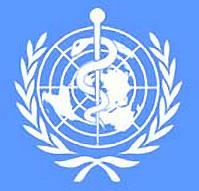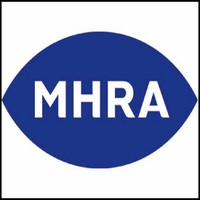| |
|
|

World Health Organisation
WHO and its Member States cooperate to promote the use of traditional medicine for health care. The collaboration aims to: 1. support and integrate traditional medicine into national health systems in combination with national policy and regulation for products, practices and providers to ensure safety and quality; 2. ensure the use of safe, effective and quality products and practices, based on available evidence; 3. acknowledge traditional medicine as part of primary health care, to increase access to care and preserve knowledge and resources; and 4. ensure patient safety by upgrading the skills and knowledge of traditional medicine providers More Info Guidelines for Good Clinical Practice
|

European Medicines Agency
European Medicines Agency introduced a new
pathway for marketing traditional herbal medicinal products, the
"simplified registration". The Committee on Herbal Medicinal Products
(HMPC) has been established in the framework of Directive 2004/24/EC and
Regulation (EC) No 726/20042.
The main task of the Committee is to
establish Community herbal monographs and entries to the 'list of herbal
substances, preparations and combinations thereof for use in
traditional medicinal products'. Community monographs and entries to the
Community List established by the HMPC can be accessed from the menu on
the left.
Furthermore, the Committee has issued a number of procedural and
regulatory documents, as well as scientific guidelines, which can also
be found in the relevant sections on the left.
More information about the
work of the HMPC can be found under the HMPC heading.
More Info
Guidelines
for Good Clinical Practice
|

Medicines and Healthcare products Regulatory Agency
In 2002 the former Medicines Control Agency
produced a report on the safety of herbal medicinal products. In 2008
the Herbal Medicines Advisory Committee, (the body that provides
independent expert advice to the Government on herbal medicines) asked
the MHRA to make available an updated summary document: Public Health
Risk with Herbal Medicines: an Overview (July 2008). The aim of doing
this is to promote wider understanding of herbal safety issues.
Objective
The MHRA's key objective is to protect public health. To help
achieve this, the Agency wishes to inform consumers, companies and
practitioners about herbal medicines that may pose a risk to human
health.
We hope that this section will help widen awareness of the
safety issues sometimes raised by the use of herbal remedies, and in
doing so, help to protect public health
More
Info
Guidelines for Good Clinical Practice
|
Clinical Trials Tool Kits
 |
This site help when trying to meet the requirements of the UK Medicines for Human Use (Clinical Trials) Regulations 2004. The regulations implement the EU Clinical Trials Directive in the UK. In light of amendments to these regulations in 2006, we are currently working to update this site. This will be finalised following publication of the specific modality for non-commercial trials. The site has been developed primarily for clinical trialists and R&D managers working in the academic sector, but will also be of use to other health professionals. To help you to navigate through the Regulations, much of the information is organised within three Route Maps. Your feedback on the content and presentation will help us improve the site. Even if your research falls outside the Regulations, you could still find the Route Maps useful. Much of the advice they contain is relevant to clinical trials and research more generally. The site has been developed by the UK Medical Research Council and Department of Health for use in all publicly funded academic trials. More Info
|
|
|
|
|











